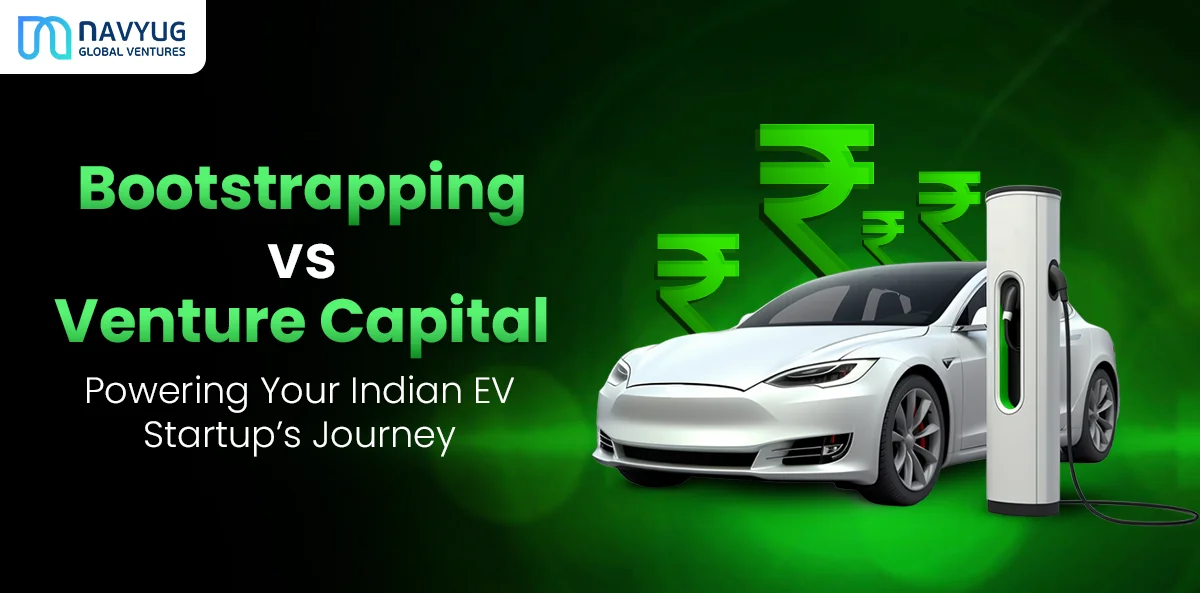What is Venture Capital?
Venture capital is a financing method where investors support startup companies with high growth potential.
It can be defined as:
“Long-term minority and temporary investment by specialized capital investment companies in small and medium-sized businesses with great prospects for profitability and/or growth.”
Venture capital provides funding to private businesses in exchange for a partial ownership stake. This form of financing is often risky, but investors make their decisions based on certain assurances. By acquiring a stake in the company, they may join the management team or board, contributing to its success. The main appeal for investors, including early stage venture capital firms and venture capital companies in Chennai, India is the significant profit potential as the invested company grows.
Early stage VC firms and venture capital startup companies are particularly interested in this investment method because it allows them to support businesses with high upside potential, aiming for substantial returns on their investment.
Typically, early stage investors and venture capital firms in India focus on companies in high-growth industries that use innovative technologies and have the potential to drive economic growth and productivity.
Venture capital offers an alternative to traditional financing methods. It helps early stage venture capital firms provide resources to emerging growth companies, enabling them to start their business, enhance their product portfolio, increase their capabilities, and expand their market reach, both nationally and internationally.
Examples of companies that received significant support from early stage VC firms during their startup periods include major brands like Apple, Microsoft, and Google.
Types of Venture Capital
The terms venture capital and private equity are often used interchangeably to refer to investments that are not traded on a public market. However, there are specific types of venture capital that correspond to different stages of a company’s development:
Seed Capital : Seed capital is needed before a business is fully launched. It’s used for market research and starting to form a company. Early stage venture capital firms invest at this stage by acquiring a share of early-stage companies.
Growth Capital : Growth capital focuses on investing in mature companies that are looking for funds to expand or restructure. This type of investment usually involves acquiring minority stakes in these established businesses.
Startup & Early-Stage Capital : This capital is used to recruit key management, conduct additional research, and prepare a product or service for the market. After launching, early stage funding venture capital can help the business increase sales, reach the break-even point, and improve efficiency.
Expansion and Late-Stage Capital : Expansion and late-stage capital is used to broaden a company’s production into new products or sectors and to boost market efforts for new products.
Bridge Financing : Bridge financing is temporary capital provided to help a company reach significant milestones, such as an initial public offering (IPO) or a merger.
Types of Venture Capital Operations
Venture capital funding can be categorized into three main types based on the operation:
Management Buyout (MBO)
MBO involves the acquisition of an already mature company by its own executives, with support from a venture capital company. This can include buying the entire company, a part of it, or its assets.
Management Buy-In (MBI)
MBI is when external managers acquire a company with the backing of a venture capital firm. These external managers take over the company to lead it forward.
Buy-In Management Buyout (BIMBO)
BIMBO combines elements of both MBO and MBI. It involves the purchase of a company where control is taken over by a team of current managers, supported by external managers and a venture capital startup company. This approach blends internal and external management to drive the company’s future.
Characteristics of Venture Capital
Venture capital is a type of financing mainly aimed at small and medium-sized companies. It is provided by specialized investment firms that take a minority stake in the company for the medium to long term.
Here are the main characteristics of venture capital:
- Venture capitalists invest by purchasing shares and taking a share in the company’s capital stock.
- It helps channel savings and addresses the need for more self-financing in small and medium-sized enterprises (SMEs).
- The receiving company must accommodate the investment firm as a shareholder, although the company usually covers the costs associated with this investment.
- Early stage venture capital firms often invest in small and medium-sized companies due to their potential for significant growth and development.
- Investment typically focuses on new and emerging economies.
- Venture capital funding is mainly directed toward companies in the growth or startup phase.
- Venture capital companies assume higher risks compared to traditional credit institutions.
- For venture capital investors, the primary benefit is achieving high returns from the sale of their stake, known as divestment or exit.
Advantages of Venture Capital Funds
Venture capital funds offer several benefits for entrepreneurs and startups:
- Access to financing: Early stage venture capital firms provide funding that might not be available through traditional banks and financial institutions.
- No debt burden: With venture capital, you avoid the constant worry of repaying debt, as you are not required to make regular payments regardless of your business’s growth.
- Comprehensive support: Venture capital startup companies offer more than just funds. They bring valuable relationships, experience, professionalism, and advice to help manage and grow your business.
- Enhanced reputation: Partnering with a venture capital company in Chennai, India like Navyug Global can boost the reputation of your project and brand.
- Technological and business model advancement: Many venture capital companies are interested in being at the forefront of technology and new business models. They seek to learn from diverse technologies and sectors, which can benefit your startup.
How Do Venture Capital Funds Influence Today’s Economy?
Venture capital funds play a significant role in various commercial and economic contexts. They help channel investments into businesses with high growth potential, leading to high profitability if these businesses receive the right support.
By providing capital to these venture capital startup companies, early stage investors and venture capital firms help boost the local economy. Their investment not only supports individual companies but also promotes innovation across different industries and economic sectors.
One such influential player in this space is Navyug Global, a leading venture capital company in Chennai, India. Navyug Global is dedicated to expanding its offerings and exploring new growth opportunities in sectors such as:
- Technology Solutions
- Consumer & Retail
- Infrastructure Development
- Business Consulting
Our involvement and investments contribute significantly to economic growth by fostering new technologies and business models, benefiting the broader economy.




